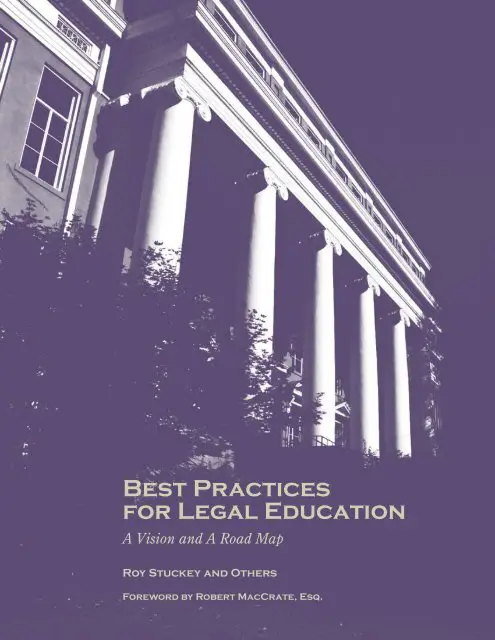Yes, Spectrum has easement rights. Easement rights allow a company to access private property for utility installations or maintenance, as specified in a legal agreement.
These rights give Spectrum the authority to enter and use a property for their infrastructure needs. Easements are typically established through contracts or local regulations, and they provide the legal basis for companies like Spectrum to ensure access to necessary areas.
Easement rights are crucial for utility providers to maintain and expand their services, and they play an essential role in the telecommunications industry. Understanding easement rights can help property owners and utility companies navigate their rights and responsibilities in the usage of private properties for essential services.

Credit: www.barclaydamon.com
Spectrum’s Easement Rights Explained
What Easement Rights Involve
When it comes to property rights, easements play a crucial role, allowing certain individuals or entities to access, use, or cross another person’s property for specific purposes. These agreements are legally binding and typically pertain to utilities, such as water, electricity, or telecommunication companies.
Specifics Of Spectrum’s Rights To Property Access
Spectrum, as a leading telecommunications provider, holds easement rights that allow them to install, maintain, and upgrade their infrastructure on private properties. These rights are established through voluntary agreements with property owners or through legal mechanisms such as condemnation, which grants the company the authority to access private land for public utility purposes.
Key Terms And Legal Principles
Understanding key terms and legal principles related to easement rights is essential for property owners and telecommunications companies alike. Easement rights are governed by principles of necessity, which dictate that access must be necessary for a particular purpose, as well as the principles of reasonable use and non-interference. Common terms associated with easement rights include dominant estate (the property benefiting from the easement) and servient estate (the property burdened by the easement).
Legal Basis For Easement Rights
Easement rights are an important aspect of property law, providing individuals and organizations with specific legal rights to use another person’s or entity’s property for a particular purpose. The legal basis for easement rights encompasses various types of easements in property law, including telecommunications companies’ easement agreements, and how Spectrum fits within the legal framework.
Types Of Easements In Property Law
Property law recognizes different types of easements, including:
- Easements Appurtenant: These easements are attached to the property itself and benefit the property owner.
- Easements in Gross: These easements benefit a specific individual or entity, rather than a particular piece of land.
- Public Easements: These are rights granted to the public for specific uses, such as access to a public beach.
Telecommunications Companies And Easement Agreements
Telecommunications companies often require easements to install and maintain their communication infrastructure. These companies may negotiate easement agreements with property owners or entities to gain access to specific properties for the installation of cables, wires, or other necessary equipment.
Spectrum’s Situation Within The Legal Framework
As a leading telecommunications company, Spectrum comes under the legal framework governing easement rights. The company must adhere to the specific regulations and agreements related to easements when seeking access to private properties for its telecommunication infrastructure.
Spectrum And Public Utility Easement
When evaluating the presence of easement rights, particularly in relation to utility providers such as Spectrum, it becomes essential to understand Spectrum’s role within the public utility easement framework. Here, we delve into the specifics of Spectrum’s operations as a utility provider and its relationship to public utility easements.
Understanding Spectrum’s Role As A Utility Provider
Spectrum, as a major telecommunications and internet service provider, operates within a broad spectrum of infrastructural domains. This encompasses the installation and maintenance of cables, wires, and equipment to provide essential services to residential and commercial consumers.
Public Utility Easement Specifics
Public utility easements are legal rights granted to utility providers, allowing them to access, maintain, and upgrade utility infrastructure within designated areas. These easements serve as crucial pathways for the unhindered provision of essential services to the public.
Spectrum’s Operations And Public Interests
Spectrum’s activities within public utility easements are designed to align with the public interest, ensuring the stability and accessibility of vital telecommunication and internet services. This ensures that communities have seamless access to high-quality connectivity, facilitating economic growth and social connectivity.
Evaluating Spectrum’s Access Claims
Procedures Spectrum Follows To Assert Easement
When it comes to asserting easement rights, Spectrum typically follows a set of procedures to gain access to properties. This may include providing advance notice to property owners, submitting necessary documentation, and adhering to local laws and regulations regarding easement and right of way.
Potential Conflicts And Dispute Resolutions
If conflicts arise between Spectrum and property owners regarding easement rights, they may resort to dispute resolutions through legal means such as mediation or arbitration. These procedures aim to find an amicable solution for both parties while upholding the legal rights of each party involved.
How Property Owners Can Verify Spectrum’s Claims
Property owners have the right to verify Spectrum’s claims regarding easement rights. They can do so by examining the legal documents provided by Spectrum, consulting with legal experts specializing in property rights, and researching local easement laws to ensure that Spectrum’s claims are valid and in accordance with the law.
Case Studies: Spectrum’s Easement Encounters
Historical Precedent-setting Cases
One of the most significant historical cases involving Spectrum’s easement rights occurred in 2002, when the company successfully argued for easement access through private properties in order to lay cable lines. This case set a precedent for future easement conflicts and has been referenced in numerous legal disputes since.
Recent Legal Conflicts And Their Outcomes
In a recent legal conflict, Spectrum was involved in a dispute with a property owner over the installation of fiber-optic cables. The court ruled in favor of Spectrum, citing their established easement rights. This case highlights the ongoing nature of easement conflicts and the importance of understanding the legal framework surrounding them.
Takeaways For Property Owners And Spectrum
For property owners, it is crucial to be aware of existing easement agreements and to seek legal advice before disputing Spectrum’s access. Understanding the historical precedent and recent outcomes can help property owners navigate easement conflicts effectively. Spectrum, on the other hand, should prioritize clear communication and transparency when exercising easement rights, as this can help mitigate potential legal conflicts.
Navigating Easement Rights with Spectrum can be a complex issue for property owners to navigate. Understanding the implications of easement rights and how they impact your property is crucial for ensuring a smooth coexistence with Spectrum. Here are some best practices, proactive approaches, and resources to assist property owners in handling easement rights issues with Spectrum.
Best Practices For Property Owners
Understanding the terms of easement rights is essential for property owners. Take the time to review your property records and identify any existing easements that may affect your property. Knowing the limitations and allowances outlined in the easement documents can help you make informed decisions when dealing with Spectrum.
Open communication with Spectrum is key. Establishing a positive and professional relationship with the company can pave the way for collaborative solutions when easement issues arise.
Consulting with a legal professional who specializes in property rights and easements can provide valuable insights and guidance. Seeking legal advice can help you protect your interests and ensure that you are aware of your rights as a property owner.
Handling Easement Issues Proactively
Regular property surveys can help you monitor and track any changes or potential encroachments on your property due to easement rights. Maintaining a clear understanding of your property boundaries can aid in identifying any issues early on and addressing them in a timely manner.
Documenting interactions with Spectrum is crucial. Keep detailed records of all communications and agreements with Spectrum regarding easement rights. This documentation can serve as important evidence in the event of any disputes or conflicts.
Seeking alternative solutions to potential conflicts is advisable. Exploring options for amicable resolutions and compromises can help mitigate the impact of easement rights on your property.
Resources For Legal Support And Advice
Securing legal representation from an attorney experienced in property law and easement issues can provide you with the necessary support and guidance. A skilled legal professional can help you navigate the complexities of easement rights and advocate for your best interests.
Utilizing community resources such as local property owner associations or legal aid clinics can offer additional support and insights into managing easement rights issues with Spectrum. Connecting with others who have faced similar challenges can provide valuable perspectives and advice.
Researching state and local laws pertaining to easement rights can empower you with knowledge and understanding. Familiarizing yourself with relevant regulations and statutes can equip you to make informed decisions and take appropriate actions regarding easement issues.
Frequently Asked Questions Of Does Spectrum Have Easement Rights
What Are Easement Rights In Relation To Spectrum?
Easement rights pertain to Spectrum’s legal rights to access and use a property for specific purposes, such as installing and maintaining utility infrastructure.
How Do Easement Rights Impact Property Owners?
Easement rights can restrict certain property uses, but can also benefit owners by allowing compensation for the use of their land.
Can Spectrum Enforce Easement Rights Without Permission?
Spectrum may enforce easement rights without permission if they hold a legitimate legal easement on the property.
What Actions Can Property Owners Take To Challenge Easement Rights?
Property owners can challenge easement rights through legal avenues, such as proving that the easement was improperly granted or is no longer necessary.
Conclusion
In essence, understanding spectrum easement rights is crucial for property owners and telecommunication companies. It enables the installation and maintenance of necessary infrastructure, ultimately benefiting the community and the company’s ability to provide services. By working collaboratively and understanding the legal framework, both parties can ensure a smooth and mutually beneficial relationship.

